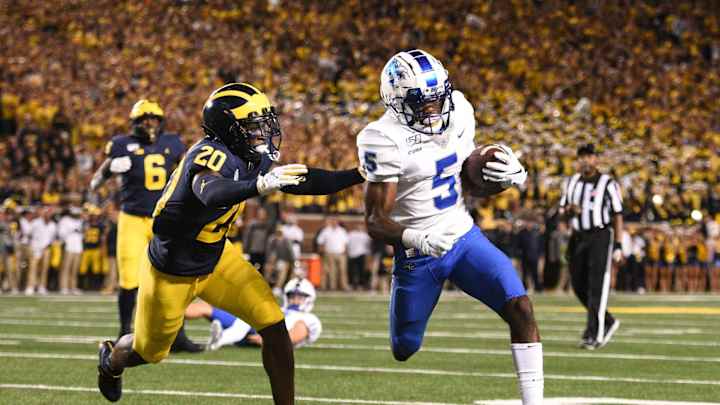Analyst: Offseason Coaching Changes Bring New Opportunity

Every college football offseason comes with a coaching carousel. Countless programs at the Division 1 level seek to replace departed coaches as well as upgrade stale options.
Michigan was forced to dip its hand into that carousel after the departures of Chris Partridge (to Ole Miss) and Anthony Campanile (to the NFL).
On Jan. 18, U-M head coach Jim Harbaugh announced Bob Shoop, previously a defensive coordinator at Mississippi State, was hired as safeties coach while Brian Jean-Mary, defensive coordinator at South Florida, was hired to coach linebackers.
The assimilation of the new coaches early in the offseason is key for Michigan as it continues to seek upgrades on the defensive side of the ball after a couple of rough late-season performances.
Anytime a new coach is hired, there is an adjustment, the new coach adapting to his surroundings and the players getting to know the man that will teach them. Former Michigan offensive lineman Rueben Riley, a regular Thursday guest on "Inside the Huddle with Michael Spath" went through this during his career, switching position coaches (and coordinators) from Terry Malone to Mike DeBord before the 2005 season.
“A major piece was, ‘How is this guy going to be relatable? Is he going to be the players’ type of coach or is he going to be the authoritative type of coach?’” said Riley. “Mike DeBord had a smooth style. He was a players’ coach, and he was the type of guy that you wanted to play for.
"We knew he had previous experience at Michigan, where he coached the offensive line. His credentials were there, and he was coming from Central Michigan as a head coach.
"When you do your homework on guys and you know that they have the credibility and they’ve coached great players, it makes you eager to just say ‘Hey, I want to be one of the great players that you’ve coached.’”
Unlike when DeBord came in, Shoop and Jean-Mary won’t be tasked with overhauling the Wolverines’ defensive schemes, but rather developing the current talent.
“If you’re a player that’s on the fringe [of playing time], you have a new slate,” Riley said. “Maybe you thought that the guy that was there before had his favorites, and you may or may not have been in that group of guys that he’s going to count on. Now you have this clean slate and you can make your first impression on this new coach, which is a wonderful thing for a lot of guys. You take advantage of new opportunities.”
That's not to say it's an easy transition. In addition to being their position coach, a number of Wolverines first met Partridge or Campanile on the recruiting trail and were introduced to the Michigan program through them. When those coaches leave, a select group of players could feel like they're losing their confidant and mentor.
“There’s concerns, especially if that was your guy who you had the closest relationship with out of all of your coaches,” Riley said. “That’s an extreme concern. When you sign on as a player, you also sign on to represent that university. That’s first and foremost. But I’d be remiss to not say that coaching and playing is all about relationships.
"So losing that relationship is tough, but at the same point in time, you’re representing that university and you already have roots in starting something. You’ve got to finish that.
"Unfortunately that’s the business of college football. Coaches go and move on and do other things, but you have a job to do. You have a mission that you need to complete.
“Sometimes that means new supervision, and you deal with it.”
